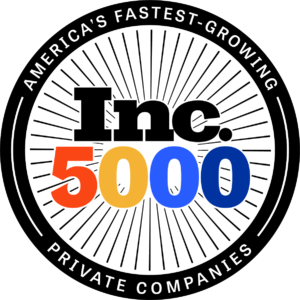Buying with the intent to rent is known as buying residual income properties. Not only can rentals be a great way to supplement your income, but, over time, they can help you create substantial wealth and even quit your “day job.” Of course, gaining wealth with rentals requires that you buy the right property, rehab it correctly, and then manage the property to meet cash flow expectations.
Thinking About Cash Flow
Cash flow is the extra rental income you have after you have paid your expenses. Your cash flow will be higher when you have lower expenses and be lower as your expenses rise. That’s why you will need to think clearly about rehabbing expenses as well as ongoing expenses when choosing a rental property.
First, you will need to decide what will you need to do to make the property rentable. Once you have those numbers, you will need to think about the future, knowing the expenses you’ll incur on a monthly, yearly, and sporadic basis.
These expenses include such things as:
* Property taxes
* Utilities not covered by tenants
* Vacancy
* Repair expenses between tenants
* Repair expenses when the property has a tenant
Once you know the expenses, you can determine the rent needed to make the property cash flow. If the numbers aren’t right, then the property is not a good one for residual income.
Cash Flow Example
Let’s look at a cash flow example:
Single Family Home:
* Purchase Price = $110,000 (I suggest staying between $100,000 and $150,000 for rental homes to reduce your risks during a market downturn.)
* Financed amount = $88,000
* Interest = 4% (Low interest rates keep your monthly mortgage payment lower, providing more choices for rentals that cash flow)
* Monthly mortgage payment = $651
* Insurance and Taxes = $1,400 yearly
* Total monthly payment including insurance and taxes = $767
* Typical rent in the area = $1600 monthly
Based on these numbers:
* Total mortgage expenses per year = $9,204 ($767 x 12)
* Annual income = $19,200 ($1600 x 12)
* Annual risk for vacancy and nonpayment = $1152 (6% of total annual income)
* Expected repairs = $2200 (2% of property value)
* Miscellaneous costs = $300 (based on reasonable advertising and other costs)
Now to figure the cash flow, you will use the following formula:
Rental Income – Loss of Income – Repairs – Mortgage Payments – Misc Expenses = Yearly Cash Flow
$19,200 – $1,152 – $2,200 – $9,204 – $300 = $6344
To find the monthly cash flow, you divide this number by 12 to get $528.
After paying your expenses, this property would provide you with $528 a month in income. At the end of 15 years, the property will provide a significantly higher income of $1179 a month because you will no longer be making the mortgage payment.
Always run these numbers when considering a rental property. It’s the only way to determine if you are making a good investment choice.
Using One Property to Pay For Another
Although having one rental property is good, having several can be better. Let’s think about our cash flow scenario above. Let’s assume that you have 4 rental properties, each bringing in about $500 a month for a total of an extra $2000. Although you could pocket that $2000, or invest in more properties, you could also use this money to begin paying down the mortgages of your current properties.
Using the snowball technique, you could do the following:
* Property 1: Pay the $650 per month in normal payments PLUS the $2000 per month from your rental properties. Doing so pays off Property 1 in just three years.
* Property 2: Once Property 1 has been paid off, you begin to pay off Property 2. Pay the $650 payment PLUS the Property 1 $650 payment PLUS the $2000. In just two years, you’ve paid off Property 2.
* Property 3: Pay all three $650 payments plus the $2000. In 1.5 years, you have paid off Property 3.
* Property 4: Pay all four $650 payments plus the $2000. In 1 year, you will have this property paid off.
In 7.5 years, you can have all four properties paid off, pocket $4500 a month, and have saved almost $60,000 in interest.
Rental Properties Appreciate
In addition to bringing in monthly income, we know that over time, property values grow. The Federal Housing Finance Agency (FHFA) House Price Index shows that homes have been appreciating steadily at 3 to 5% per year as a national average since 1975. Even with the downturn during the housing
bubble, those that help onto their properties have since recouped any losses are are back on track with positive appreciation. In fact, in 2016, 15 states had higher than 5% appreciation.
Having assets that appreciate increase your net worth. So, holding real estate is a good way to make yourself wealthy.
What To Look For In a Rental Property
When you choose a property for residual income, you are looking for specific factors that will make your appreciation grow and allow you to charge a high rent. Here are some of these factors:
The Neighborhood: The neighborhood you choose will affect your type of tenants, and the tenants you attract will affect the neighborhood you need to choose. You should always consider the tenant base for the neighborhoods you choose.
Property Taxes: The amount of property taxes will affect how much you charge for rent. This means you need to be sure that the taxes are in sync with the rental prices in the area. For instance, if an area has a high tax rate but the rental prices are low, then you may not be able to make enough with your rental income to create a positive cash flow. You can find out about the taxes on a particular piece of property by contacting the tax assessor’s office.
School District: If the home you choose is in a family-friendly neighborhood, then you are likely to attract tenants with families. Parents try to find homes to rent in areas with a good school reputation. The better the school district, the more you will be able to charge in rent.
Crime Rates: As with any kind of real estate purchase, you will want to buy a home in a neighborhood with a low crime rate. Renters care about this just as much as home buyers.
Job Market: An area with a good job market will help you attract long-term renters. Having a home that is accessible to local jobs will also allow you to charge more in rent.
Amenities: You need to choose homes that are close to amenities, such as proximity to public transportation, city parks, movie theaters, gyms, and shopping centers.
Future Developments: It’s a good idea to check in with the municipal planning department and find out if any new developments will be going up in the area. As these developments grow, then the value of properties around them will grow as well. Also look for negative developments such as low-income housing or large developments that will create traffic issues or the loss of green space.
Residual income properties are an excellent way to bring in consistent money as long as you check the numbers. If a property can cash flow, then it might just be the right property for your portfolio.





